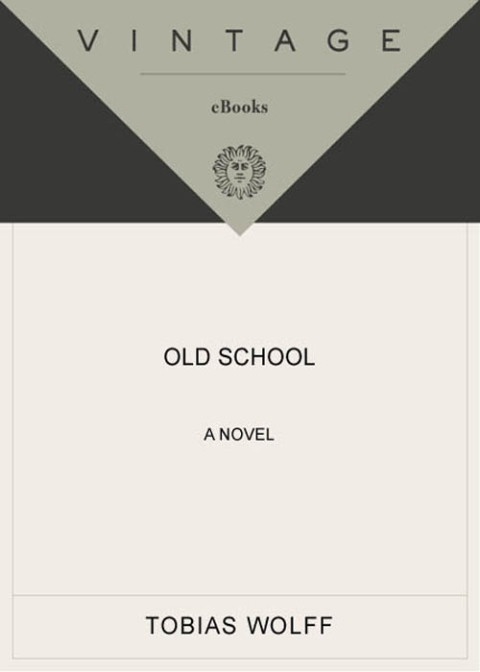
Preview Old School
Tobias Wolff's Old School is at once a celebration of literature and delicate hymn to a lost innocence of American life and art. Set in a New England prep school in the early 1960s, the novel imagines a final, pastoral moment before the explosion of the Civil Rights movement, the Vietnam War, the assassination of John F. Kennedy, and the suicide of Ernest Hemingway.
The unnamed narrator is one of several boys whose life revolves around the school's English teachers, those polymaths who seemed to know "exactly what was most worth knowing." For the boys, literature is the center of life, and their obsession culminates in a series of literary competitions during their final year. The prize in each is a private audience with a visiting writer who serves as judge for the entries.
At first, the narrator is entirely taken with the battle. As he fails in his effort to catch Robert Frost's attention and then is unable--due to illness--to even compete for his moment with Ayn Rand, he devotes his energies to a masterpiece for his hero, Hemingway. But, confronting the blank page, the narrator discovers his cowardice, his duplicity. He has withheld himself, he realizes, even from his roommate. He has used his fiction to create a patrician gentility, a mask for his middle class home and his Jewish ancestry. Through the competition for Hemingway, fittingly, all of his illusions about literature dissolve.
Old School is a small, neatly made book, spare and clear in its prose. Each chapter is self-contained and free of anything extraneous to the essentials of plot, mood, and character. Near the end of the novel, the narrator, now a respected writer, imagines that he might one day write about his school days. But he is daunted. "Memory," he says, "is a dream to begin with, and what I had was a dream of memory, not to be put to the test." Old School enters this interplay between dreams and the adult interrogation of memory. Risking sentimentality, Wolff confronts a golden age that never was. From the confrontation, he distills a powerful novel of failed expectations and, ultimately, redemptive self-awareness. --Patrick O'Kelley
From Publishers WeeklyA scholarship boy at a New England prep school grapples with literary ambition and insecurity in this lucid, deceptively sedate novel, set in the early 1960s and narrated by the unnamed protagonist from the vantage point of adulthood. Each year, the school hosts a number of visiting writers, and the boys in the top form are allowed to compete for a private audience by composing a poem or story. The narrator judges the skills of his competitors, avidly exposing his classmates' weaknesses and calculating their potential ("I knew better than to write George off.... He could win.... Bill was a contender"). His own chances are hurt by his inability to be honest with himself and examine his ambivalent feelings about his Jewish roots. After failing to win audiences with Robert Frost and Ayn Rand, he is determined to be chosen by the last and best guest, legendary Ernest Hemingway. The anxiety of influence afflicts all the boys, but in crafting his final literary offering, the narrator discovers inspiration in imitation, finding his voice in someone else's. The novel's candid, retrospective narration ruefully depicts its protagonist's retreat further and further behind his public facade ("I'd been absorbed so far into my performance that nothing else came naturally"). Beneath its staid trappings, this is a sharply ironic novel, in which love of literature is counterbalanced by bitter disappointment (as one character bluntly puts it, "[Writing] just cuts you off and makes you selfish and doesn't really do any good"). Wolff, an acclaimed short story writer (The Night in Question, etc.) and author of the memoir This Boy's Life, here offers a delicate, pointed meditation on the treacherous charms of art.
Copyright 2003 Reed Business Information, Inc.
